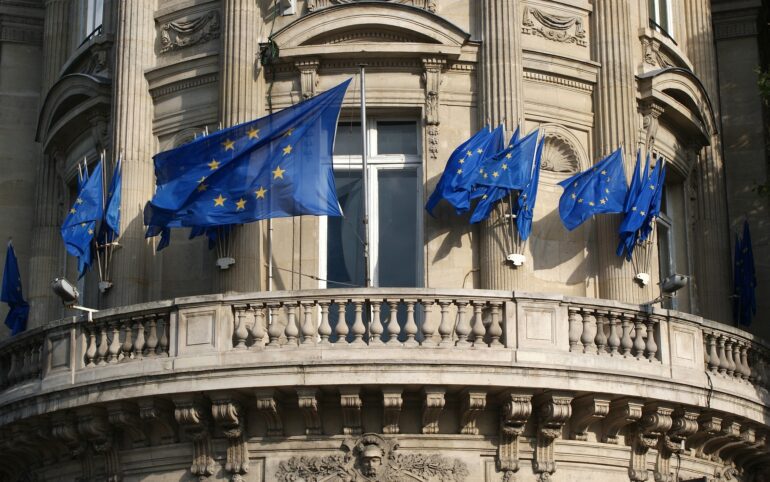TL;DR:
- The European Union is set to achieve a significant milestone with the introduction of the world’s first major artificial intelligence (AI) law.
- A preliminary agreement has been reached by members of the European Parliament to push through the draft of the EU’s Artificial Intelligence Act.
- The final details of the bill will be determined through negotiations between the Parliament, EU member states, and the European Commission.
- The EU AI Act aims to balance innovation with mitigating risks associated with emerging technologies.
- Regulators worldwide are striving to find a balance between regulating AI and fostering innovation.
- High-risk AI use cases require guardrails to prevent costly and damaging consequences.
- Although the EU AI Act is expected to be passed this year, enforcement may take a few years.
- Businesses should start considering the implications of the new legislation without waiting for its passage.
- The popularity of generative AI applications has prompted the need for regulations to manage uncontrolled growth.
- Collaboration among world leaders is advocated to address potential disruptions caused by advanced AI.
- G-7 digital ministers have agreed to adopt “risk-based” regulation on AI, which could lead to global agreements.
- The aim is to protect democracies from abusive manipulation by AI while ensuring its usefulness.
- The G-7 meeting was attended by representatives from Indonesia, India, and Ukraine, demonstrating the global relevance of AI regulation.
Main AI News:
The European Union (EU) is poised to achieve a momentous milestone this year as it approaches a political consensus that will establish the world’s inaugural comprehensive artificial intelligence (AI) legislation, announced Margrethe Vestager, the EU’s tech regulation chief, on Sunday. This noteworthy development follows an initial agreement reached by members of the European Parliament last Thursday, propelling the EU’s draft Artificial Intelligence Act towards a pivotal vote scheduled for May 11. Subsequently, Parliament will engage in collaborative negotiations with EU member states and the European Commission to finalize the bill before it transforms into enforceable law.
Margrethe Vestager, while addressing the press at a Group of Seven digital ministers’ gathering in Takasaki, Japan, highlighted the pro-innovation essence of the EU AI Act, which aims to mitigate the societal risks associated with emerging technologies. The delicate challenge faced by regulators worldwide is to strike an equilibrium that empowers governments to establish “guardrails” for nascent artificial intelligence while nurturing an environment conducive to innovation. Vestager expounded on the rationale behind the high-risk usage boundaries, emphasizing that the aftermath of AI misuse would incur significantly greater expenses and damages compared to the actual application itself.
While the passage of the EU AI Act is anticipated within the current year, legal experts have cautioned that it will take several years for the legislation to be effectively enforced. Nonetheless, Vestager encouraged businesses to proactively consider the implications of this impending legal framework. She asserted that waiting for the legislation to materialize is unnecessary, urging enterprises to expedite discussions and implement the necessary changes across all systems influenced by AI’s pervasive impact.
While research on AI has been underway for years, the recent surge in popularity of generative AI applications, exemplified by OpenAI’s ChatGPT and Midjourney, has precipitated a scramble among lawmakers to formulate regulatory measures to govern uncontrolled growth in this domain. Prominent figures such as Elon Musk and European lawmakers actively engaged in drafting the EU AI Act have called for international collaboration among world leaders to address the potential disruptions caused by advanced AI.
Signifying a momentous step forward, digital ministers representing advanced nations within the G-7 also agreed on the adoption of “risk-based” AI regulations. These initial measures hold the potential to pave the way for global agreements on the governance of AI. German Transport Minister Volker Wissing emphasized the importance of democratic systems implementing protective rules to safeguard against manipulative abuses of AI, asserting that while AI should be beneficial, it must not be allowed to exert undue influence.
In addition to the G-7 participants, representatives from Indonesia, India, and Ukraine also attended this year’s G-7 meeting, reflecting the widespread recognition and global significance of the AI regulation discourse.
Conlcusion:
the impending introduction of the European Union’s comprehensive artificial intelligence (AI) legislation, coupled with the global momentum towards regulating AI, signifies a pivotal turning point for the market. The EU AI Act’s focus on striking a balance between innovation and risk mitigation sets a precedent for other regions and industries to follow suit.
As businesses navigate the evolving regulatory landscape, they must proactively consider the implications of this new legislation on their operations and adapt accordingly. This heightened regulatory scrutiny presents both challenges and opportunities for market players, requiring them to ensure compliance with emerging AI regulations while exploring innovative ways to harness the potential of AI responsibly.
Additionally, the collaborative efforts among world leaders and the adoption of “risk-based” regulation on AI by the G-7 advanced nations foster an environment of international cooperation and could lead to global agreements on AI governance.
Ultimately, these developments emphasize the increasing importance of ethical and responsible AI practices in the market, driving the need for businesses to stay informed, adapt their strategies, and seize the potential advantages presented by the regulated AI landscape.

